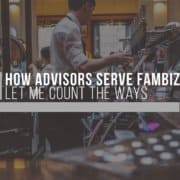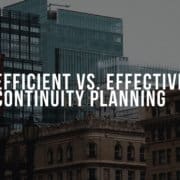So Many Questions, So Little Time
As much as I enjoy speaking with people who are part of a family business, some of the discussions I have with colleagues who also work with such families are even more stimulating.
These can involve general topics that affect many families, or, on occasion, a specific family situation that one of us happens to be dealing with concerning a particular client family.
Some of the most energizing dialogues meander all over the place, from general to specific and back again.
This blog stems from some notes I jotted down after one such meeting a while back, with two friendly colleagues who happen to work for a multi-family office, where the subject matter bounced all over the place, much to my delight.
Needless to say, together we raised way more questions than we answered, but all were related to how families can get their needs served as they prepare for the future.
Handling a Family’s Concerns
The questions also rotated around what a family could do, should do, and would do, depending on a number of different factors.
For example, what should a family be concerned about, as they begin to prepare for an upcoming generational transition?
What could they do about things, assuming that they even properly comprehended what challenges they were actually going to be facing together?
What would they be ready to undertake as first steps to move in the right direction together as they begin to understand the importance of doing this work as a family?
Finding Resources and Getting Help
What kind of work could they be doing together, assuming they knew that some help was available to them?
When it comes to what a family should be doing, as advisors that’s really tough to assess up front, until we’ve done the work and spent enough time getting to know them, so that we can have some ideas to suggest to them.
Assuming that we have some ideas, we also need to consider what the family would be able to handle right now, so that we can get some small early wins and develop momentum with them.
Preparing for the Family’s Future
An interesting way to learn more about a family can involve asking them what they would like the future to look like for their family. You can expect different answers from different family members, so you also need to decide whether you’re asking them as a group or one-on-one.
After that you might want to ask them what they think they could be doing to achieve that kind of future. A follow-up to that one might be to ask what they think they should start with.
It’s one thing to have these kinds of conversations with people who are part of a business family, but it’s even more important to make sure that they are also having such discussions amongst themselves, as a family.
Encouraging Families to Have Dialogues
As much as you might think that most families regularly talk about things together, you’d be surprised how often you find out that the really important subjects just don’t seem to come up very often.
Family enterprises result in some complex relationships between people where the family and the business overlap, and maybe because people spend lots of time together, they assume that they know how the others feel. See: Curiosity as the Antidote to Assumptions in Families
As advisors we can and should encourage families to have dialogues about important subjects that involve their futures together, but that might not be sufficient.
Often what families really need is someone to guide such discussions so that they feel like a safe space for everyone to share, which is not always the case.
Moving Away from Should to Could and Would
Often families who are looking for advice will ask what should we do.
Even when we have some good ideas, it’s better not to jump in with an answer right away, as noted above, because we really need to get to know them first.
Helping them see what they could achieve and become together can go a long way. But there’s usually lots of work involved in hitting their full potential, so it’s best to also share with them everything that would be involved in getting there.
What we want to avoid is having any of our family clients someday having regrets about what they woulda, coulda or shoulda done.










